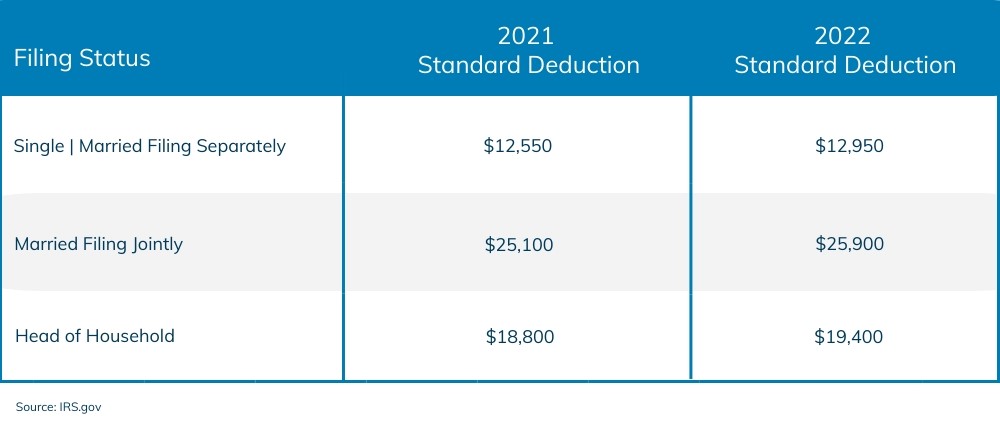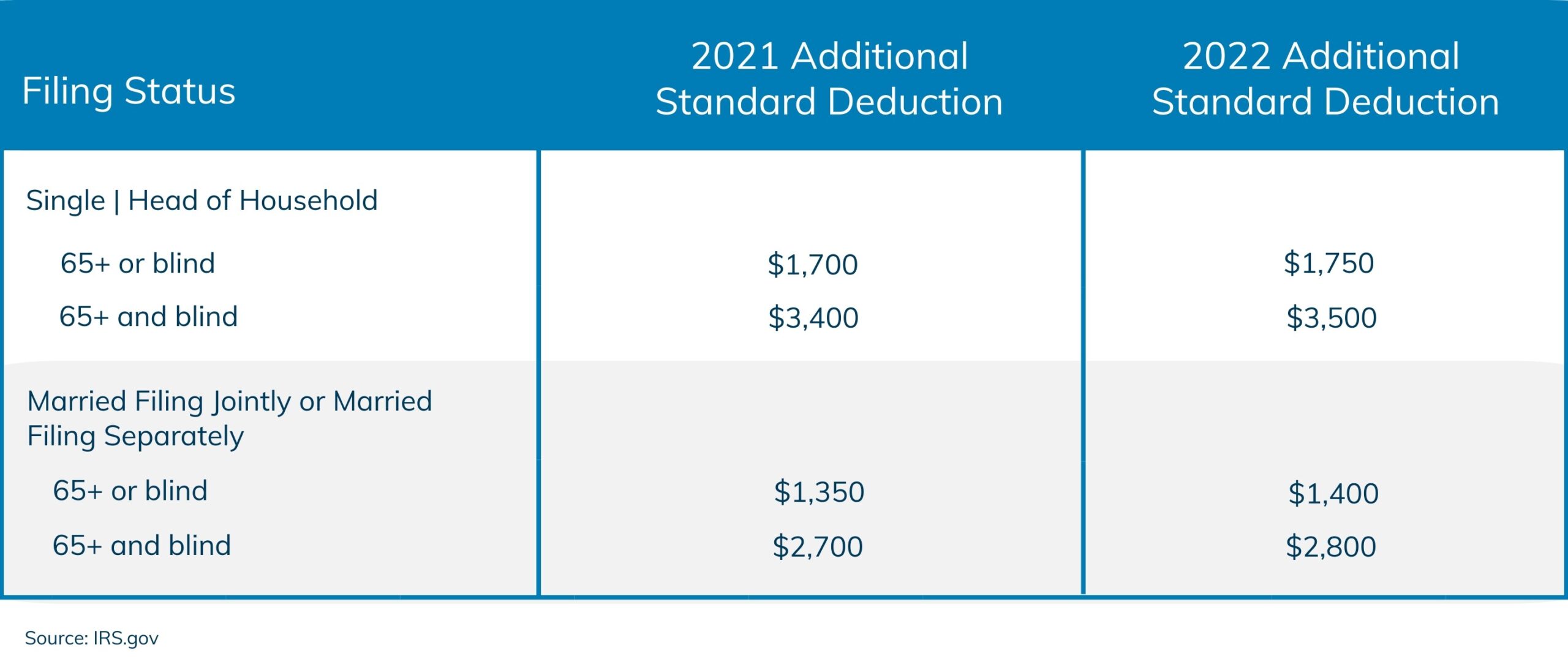When it’s time to file your taxes, you’ll need to decide whether to take the standard deduction or itemize your taxes. Itemizing is beneficial if you have multiple investments, donate high-value tangible items to charity, or have large medical bills. With the elimination of the personal exemption, however, many people find that the standard tax deduction is the better option. Not sure which is best for you? Check out the 2021 and 2022 standard deduction amounts below, as well as our tips for choosing which option to take.
The 2021 and 2022 Standard Deduction
The standard deduction amount you’ll receive is based not only on your filing status but also on your age and other factors. The charts below include the amounts for this year’s tax season, as well as the 2022 tax season (for returns filed in 2023).

If you are 65 or older, or blind, you can claim an additional amount on top of the standard deduction for your filing status. Per the IRS, a person is considered to reach the age of 65 on the day before their birthday. To take the additional deduction amount for blindness, you must be legally blind by the end of the tax year or have your eye doctor (ophthalmologist or optometrist) provide a certified statement that you can’t see better than 20/200 in your better eye with glasses or contacts, or your field of vision is 20 degrees or less. Be sure to keep a copy of this letter for your records.
Below are the amounts you’ll receive, based on your filing status, if you’re 65+ and/or blind.

When filing a joint return, keep in mind that the additional amount is awarded for each spouse who qualifies.
Standard Tax Deduction For Dependents Who File
The standard tax deduction can get a bit more complicated if you’re claimed as a dependent on another taxpayer’s return. For the 2021 tax season, the standard deduction is the greater of $1,100 or your earned income plus $350. The total deduction amount, however, cannot exceed the regular standard deduction for your filing status.
Here’s an example of how this works. Cody is a sophomore in college and earned $16,000 from a lucrative internship in 2021. Since his parents claim him as a dependent on their taxes, he’ll need to use one of the following for his deduction.
- $1,100
- $16,350 (his earned income plus $350)
- $12,550
Do you know which amount he should take? The answer is C. Although $16,350 is greater than $1,100, it also exceeds the regular standard deduction of $12,550 for single filers. Therefore, Cody must use $12,550 when filing.
When To Claim The Standard Deduction
Most taxpayers use the standard deduction when filing their taxes. There’s no need to keep receipts and the math is a lot easier to calculate. The amount of the deduction is also much higher thanks to the Tax Cuts & Jobs Act (TCJA) of 2017 which nearly doubled the amount for all filing statuses.
The main advantage to the standard deduction is that anyone can claim it unless you fall into one of the following scenarios:
- You are married filing separately and your spouse is itemizing deductions
- You’re filing as an estate, trust, or partnership
- During the tax year, you were a non-resident alien or dual-status alien
- Due to a change in your accounting period, you’ll be filing for less than 12 months
In general, you’ll want to take the standard deduction if you don’t own any real estate or investments, or don’t have any significant medical bills. It’s not a bad idea, however, to prepare your taxes using both methods to see which gives you the best outcome.
When to Itemize Your Taxes
Although the standard deduction is the easiest way to reduce your taxable income when filing, it’s not necessarily the best option for everyone. Itemizing your deductions typically makes sense if you:
- Have unreimbursed medical expenses (exceeding 7.5% of your adjusted gross income (AGI)
- Make charitable donations (cash and tangible items)
- Have casualty and theft losses
- Pay state and local taxes
- Have gambling losses
- Own a home with a mortgage
If the total of these deductions exceeds the standard deduction amount, it’s definitely worth the time and effort. Just remember that you’ll need to track your expenses and keep receipts when using this method. We also recommend keeping your records for seven (7) years, just in case you are audited.
